How to Choose the Best Hurricane Doors for Your Business Needs
In the face of increasingly severe weather events, particularly hurricanes, investing in robust Hurricane Doors has become a critical concern for businesses located in vulnerable areas. According to the National Oceanic and Atmospheric Administration (NOAA), the average number of hurricanes making landfall in the United States has increased in recent years, raising the stakes for business owners seeking to protect their assets.

In fact, the Atlantic hurricane season has seen a 50% increase in hurricanes since the 1980s, demonstrating the urgent need for resilient infrastructure. Choosing the right Hurricane Doors not only helps safeguard physical property but also minimizes business interruptions and liability concerns.
This blog aims to guide you through the essential criteria to consider when selecting Hurricane Doors, ensuring that your business remains secure and prepared for whatever nature may bring.
The Importance of Hurricane Doors in Business Resilience and Safety
Hurricane doors serve as a critical element in safeguarding businesses against severe weather conditions. According to a report by the National Oceanic and Atmospheric Administration (NOAA), hurricanes cause an average of $28 billion in property damage annually in the United States alone. This statistic underscores the necessity for businesses, especially in coastal regions, to invest in robust hurricane doors that can withstand high winds and flying debris. By enhancing their resilience, companies not only protect their physical assets but also ensure operational continuity during and after a storm.
In addition to property protection, hurricane doors significantly contribute to overall safety for employees and customers. A study by the Insurance Institute for Business & Home Safety (IBHS) found that businesses with properly installed impact-resistant doors experience up to 60% less damage during hurricanes compared to those without such features. This reduction in damage translates to lower insurance premiums and fewer disruptions, ultimately enhancing a business's reputation for safety and reliability. By prioritizing hurricane door installation, businesses not only fortify their premises but also demonstrate a commitment to the well-being of their workforce and clientele.
Key Factors to Consider When Selecting Hurricane Doors for Commercial Properties
When selecting hurricane doors for your commercial property, it is essential to consider several key factors to ensure both safety and functionality. First and foremost, look for doors that meet local building codes and regulations. The impact resistance of these doors is critical; they should be tested against high winds and flying debris. Materials such as reinforced steel or fiberglass are often the best choices for durability and protection.
Another important factor is the design and ease of operation. Ensure that the hurricane doors you choose allow for quick evacuation and are accessible to all employees and customers, especially during emergency situations. Additionally, consider the aesthetic appeal and how well the doors blend with the existing architecture of your business. Energy efficiency is also a consideration, as well-insulated doors can help reduce heating and cooling costs. By taking these factors into account, you can select hurricane doors that will provide the necessary protection without compromising the functionality and appearance of your commercial property.
Hurricane Door Selection Factors for Commercial Properties
Understanding Building Codes and Regulations for Hurricane Door Installation
When selecting hurricane doors for your business, it’s crucial to consider building codes and regulations that govern their installation. Different regions have specific codes based on historical weather patterns and safety requirements. For instance, areas prone to severe hurricanes may necessitate doors that meet higher impact ratings and testing standards, ensuring they can withstand extreme wind pressures and flying debris. Familiarizing yourself with local regulations not only ensures compliance but also enhances the safety of your business during a storm.
Moreover, understanding these codes can significantly impact your door selection process. For example, the code may dictate certain materials, installation methods, and even the types of hardware required. This compliance will not only protect your investment but can also influence insurance premiums, as well as liability in case of damage. Consulting with local building authorities or a professional contractor can help you navigate these regulations more effectively, ensuring that the doors you choose not only meet safety standards but also enhance the resilience of your business against hurricanes.
How to Choose the Best Hurricane Doors for Your Business Needs
| Door Type | Material | Wind Resistance (MPH) | Impact Rating | Building Code Compliance |
|---|---|---|---|---|
| Steel Hurricane Door | Steel | 150 | Level D | ANSI 500-1999 |
| Fiberglass Hurricane Door | Fiberglass | 140 | Level C | Miami-Dade Certified |
| Aluminum Hurricane Door | Aluminum | 160 | Level E | FBC-2017 |
| Wood Hurricane Door | Wood | 110 | Level B | ASTM E1886 |
Comparing Materials and Design Options for Maximum Storm Protection
When selecting the best hurricane doors for your business, it's essential to consider the materials and design options that will provide maximum protection during severe storms. Different materials like fiberglass, aluminum, and wood offer varying levels of durability and resistance to wind and impact. Fiberglass doors, for instance, are lightweight yet robust, making them ideal for areas prone to high winds. On the other hand, aluminum doors are known for their strength and resistance to corrosion, ensuring longevity even in harsh weather conditions.
In addition to material selection, the design of the doors plays a crucial role in storm protection. Reinforced frames, impact-resistant glass, and proper sealing mechanisms can significantly enhance the door's ability to withstand extreme weather. Businesses should also consider the door's aesthetics and how it fits within the overall architecture, as functionality should not compromise visual appeal. Adequate research into available options can help in choosing hurricane doors that best align with safety needs and business identity.
Cost-Benefit Analysis: Investing in Hurricane Doors for Long-Term Business Security
Investing in hurricane doors is not just a matter of structural integrity; it's a strategic decision that impacts the long-term security of your business. When considering the cost-benefit analysis, one must weigh the initial investment against potential losses incurred from storm-related damages. The right hurricane doors can significantly reduce the risk of flooding and wind damage, ultimately saving your business from costly repairs and extended downtime. In areas prone to severe weather, these doors can serve as a crucial line of defense, ensuring that operations continue smoothly even during a hurricane.
Moreover, the financial benefits extend beyond immediate storm protection. Many insurance providers offer lower premiums for businesses equipped with hurricane-resistant doors, recognizing the reduced risk of claims. This means that the cost of installation can often be offset by the long-term savings on insurance. Additionally, the enhanced safety features of these doors can elevate your business's reputation, attracting more customers who prioritize safety and security. By investing in high-quality hurricane doors today, you're not just securing your premises; you're also positioning your business for a more resilient future.
Related Posts
-
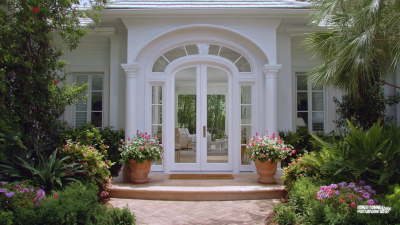
Innovative Solutions for Best Hurricane Doors in 2025 Industry Trends
-
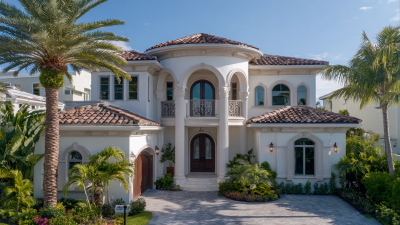
Top Examples of Hurricane Impact Windows That Enhance Home Safety and Aesthetics
-
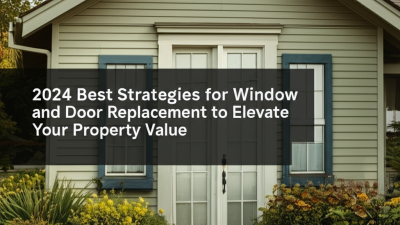
2024 Best Strategies for Window and Door Replacement to Elevate Your Property Value
-
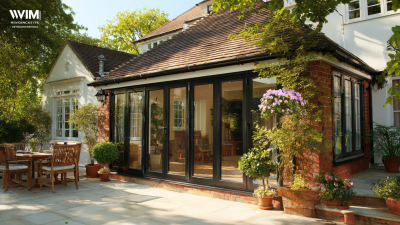
Finding Top Quality Suppliers for Best Bifold Patio Doors without Compromise
-

Exploring the Advantages of Choosing the Best Commercial Glass Doors for Your Business
-
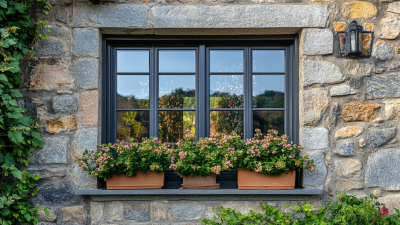
Unlocking the Secrets to Choosing the Perfect Home Windows for Your Needs
